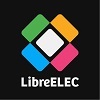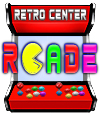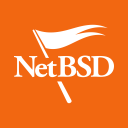Difference between revisions of "ROCK64 Software Releases"
(→ayufan's Linux releases: update) |
(→AOSC: Updated section) |
||
| Line 19: | Line 19: | ||
== AOSC == | == AOSC == | ||
[[File:aosc.png|right|100px]] | [[File:aosc.png|right|100px]] | ||
'''AOSC OS''' is a general purpose Linux distribution that strives to simplify user experience and improve free and open source software for day-to-day productivity. To learn more about AOSC, please visit the official [https://aosc.io/ AOSC website]. | |||
{{Info|AOSC is using LZ4 compression algorithm for the downloads, please visit the [https://github.com/lz4/lz4 LZ4 GitHub site] for an utility for extracting the archives}} | |||
Download: | |||
* https://aosc.io/downloads/ (supports the microSD card and eMMC, 8GB or more) | |||
{| class="wikitable" | |||
!colspan="2" style="background: #a7d7f9;"| Default credentials | |||
|- | |||
! Default user | |||
| <code>aosc/anthon</code> | |||
|} | |||
== Manjaro ARM == | == Manjaro ARM == | ||
Revision as of 14:48, 17 January 2023
This page contains a list of all available releases for the ROCK64, as well as links to other resources.
Linux Image Releases
Armbian
Armbian is a Linux distribution designed for ARM boards. They are usually Debian or Ubuntu flavored. To find out more about Armbian and available download options please visit the Armbian ROCK64 site.
Download:
AOSC
AOSC OS is a general purpose Linux distribution that strives to simplify user experience and improve free and open source software for day-to-day productivity. To learn more about AOSC, please visit the official AOSC website.
Download:
- https://aosc.io/downloads/ (supports the microSD card and eMMC, 8GB or more)
| Default credentials | |
|---|---|
| Default user | aosc/anthon
|
Manjaro ARM
Manjaro editions for Rock64 are available directly from Manjaro. To learn more about Manjaro please visit the Manjaro Forum.
Download:
- Manjaro ARM ROCK64 GitHub (supports the microSD card and eMMC)
ayufan's Linux releases
The community member ayufan offers multiple ROCK64 Linux releases based on Debian and Ubuntu. The forum thread for release can be found here.
Download:
- https://github.com/ayufan-rock64/linux-build/releases (supports the microSD card and eMMC)
| Default credentials | |
|---|---|
| Default user | rock64/rock64
|
Slackware
- Slackware is a very old, interesting, convenient and easy distribution.
- Visit the project's website here (https://fail.pp.ua)
- You can follow the ongoing discussion about Slackware on the PINE64 forum (https://forum.pine64.org/showthread.php?tid=5868)
- This Slackware build using ZST compression algorithm, please visit the ZST github site for utility
Slackware Aarch64 XFCE Community Build Image [microSD Boot]
- System with a graphical shell
- DD image to microSD card and boot. Highly recommend using Etcher
- Login with
- Username : root
- Password : password
Slackware Aarch64 Miniroot Community Build Image [microSD Boot]
- System without a graphical shell
- DD image to microSD card and boot. Highly recommend using Etcher
- Login with
- Username : root
- Password : password
- To run the OS on eMMC
- Flash the image to micro SD, power up the board with micro SD and login
- Copy the image file to micro SD by using SFTP. The image file must be in .img. note : root user are not allow transfer file to micro SD.
- After finish copy the file, power off the board and add eMMC module to the board
- Bootup the board, run below command for flashing to eMMC module
- >>dd if=[image file] of=/dev/mmcblk1 bs=10M
- example : dd if=slack-current-aarch64-xfce_08May18-4.4.126-rock64-build-20180508.img of=/dev/mmcblk1 bs=10M
- then edit 2 files in eMMC module:
- >> mount /dev/mmcblk1p1 /media
- >> echo "rootdev=/dev/mmcblk1p1" >> /media/boot/uEnv.txt
- >> sed -i 's:mmcblk0p1:mmcblk1p1:' /media/etc/fstab
- >>dd if=[image file] of=/dev/mmcblk1 bs=10M
- After done, power off board and remove micro SD. Then bootup with only eMMC module.
DietPi
- DietPi is a lightweight, yet easy to setup and feature-rich Linux distribution, based on Debian.
- To find out more about DietPi, please visit the official documentation.
- Discuss the ROCK64 build on the PINE64 forum thread.
- DD image (for 4 GiB micro SD card or eMMC and above)
- Login with
- Username: root
- Password: dietpi
LibreELEC (KODI)
Official LibreELEC KODI Build Image [microSD / eMMC boot]
- Unzip and DD image to microSD card or eMMC module and boot. Highly recommend using Etcher
- 8GB microSD card or eMMC module and above
Daily Build images (for testing) [microSD / eMMC boot]
- Unzip and DD image to microSD card or eMMC module and boot. Highly recommend using Etcher
- 8GB microSD card or eMMC module and above
Volumio 2 Digital Audio Player
- Volumio is a linux-based headless DAP (digital audio player), which connects to your home stereo system or your DAC
- Visit the project's website here
- You can follow the ongoing discussion about Volumio on the PINE64 forum
Volumio Digital Audio Player Community Build Image [microSD Boot] [2.528-2019-01-12]
- DD image (for 8GB microSD card and above)
- Login with
- Username: volumio
- Password: volumio
- Volumio is controlled using a Web-GUI which can be accessed via a web browser using the boards IP or volumio.local/
R-Cade
Retro Center's R-Cade [USB / microSD / eMMC Boot]
- The 4K Media Center Arcade
- RCade Features 100+ retro-gaming systems, a lightweight web browser, and full 4K UHD media playback
- DD image to USB, microSD, or eMMC and boot. Highly recommend using Etcher
Lakka
Lakka Community Build Image [microSD / eMMC Boot]
- Lakka The open source game console; a lightweight Linux distribution that transforms the Rock64 into a full blown retrogaming console
- Visit PINE64 forum for more information about the Lakka release
- DD image to microSD card and boot. Highly recommend using Etcher
- Lakka Basic Setup
Debian
Debian Installer - Bullseye
- Go to Debian Bullseye's official d-i concatenateable images directory
- Download firmware.rock64-rk3328.img.gz and partition.img.gz
- Combine the 2 parts into 1 image file:
zcat firmware.rock64-rk3328.img.gz partition.img.gz > debian-installer-bullseye-rock64-rk3328.img* - Write the created .img file to microSD card or eMMC Module with
dd - Plug the microSD/eMMC card in the Rock64 and connect a serial console and boot up to start the Debian Installer
*) (for non-Linux systems, consult README.concatenateable_images)
Debian Installer - Daily Build (for Bookworm+)
- Go to Debian's daily build official d-i concatenateable images directory
- Download firmware.rock64-rk3328.img.gz and partition.img.gz
- Combine the 2 parts into 1 image file:
zcat firmware.rock64-rk3328.img.gz partition.img.gz > debian-installer-daily-build-rock64-rk3328.img* - Write the created .img file to microSD card or eMMC Module with
dd - Plug the microSD/eMMC card in the Rock64 and boot up to start the Debian Installer. It should work with both a normal display and a serial console
*) (for non-Linux systems, consult README.concatenateable_images)
Debian by ayufan
Debian Stretch Minimal 64bit (arm64) OS Image [microSD / eMMC Boot] [0.8.3]
- DD image to microSD card or eMMC module and boot. Highly recommend using Etcher
- Direct download from ayufan's github
- size: 212MB
- Login with
- username: rock64
- password: rock64
- Forum thread concerning this release can be found here
Debian by mrfixit2001
Minimal Debian [microSD / eMMC Boot]
- DD image to microSD card or eMMC module and boot. Highly recommend using Etcher
- Direct download from mrfixit2001's github
- Version 190514 onward support Rock64-v3 board
- Login with
- username: rock
- password: rock
OpenMediaVault
Jessie OpenMediaVault Community Build Image [microSD to eMMC] [0.5.15-136] by ayufan
- openmediavault is the next generation network attached storage (NAS) solution, click link to OMV main page
- DD image to microSD card. Highly recommend using Etcher
- Shorting the eMMC PIN with a jumper as shown on the 1st image of Guide to install stock Android build to eMMC module. After power ON the box for 2-3 second, quickly remove the jumper. After boot, it will prompt for confirmation 'Y' to start writing the new image to the eMMC. Then follow the instructions on the screen
* There's a bug with eMMC in the "Stable" version of openmediavault linked from the wiki page. In order to use eMMC, please you need to be on the latest (pre-release) version which is linked here https://github.com/ayufan-rock64/linux-build/releases
- Release notes on ayufan Linux github
- Direct download from pine64.org
- MD5 (XZ file): 7E423EF9146EA15403E7D1B4EA30594A
- File Size: 487MB
- Credentials (console/ssh, except OMV): rock64/rock64
- Credentials (OMV for Web): admin/openmediavault
- Credentials (OMV for console): root/openmediavault
- OpenMediaVault Basic Setup
- OpenMediaVault Plugins
Stretch OpenMediaVault OS Image 32bit (armhf) [microSD / eMMC Boot] [0.8.3]
- openmediavault is the next generation network attached storage (NAS) solution, click link to OMV main page to learn more
- DD image to microSD card or eMMC module. Highly recommend using Etcher
- Release notes on ayufan Linux github (pay attention to the release tag. Don't accidentaly choose a pre-release build)
- Direct download from ayufan's github
- size: 391MB
- WebGUI Login:
- username: admin
- password: openmediavault
- SSH/ Console Login:
- username: root
- password: openmediavault
- NB! You need to enable root login in OMV WebGUI
- OpenMediaVault Basic Setup
- OpenMediaVault Plugins
- Forum thread concerning this release can be found here
Stretch OpenMediaVault OS Image 64bit (arm64) [microSD / eMMC Boot] [0.8.3]
- openmediavault is the next generation network attached storage (NAS) solution, click link to OMV main page to learn more
- DD image to microSD card or eMMC module. Highly recommend using Etcher
- Release notes on ayufan Linux github (pay attention to the release tag. Don't accidentaly choose a pre-release build)
- Direct download from ayufan's github
- size: 340MB
- WebGUI Login:
- username: admin
- password: openmediavault
- SSH/ Console Login:
- username: root
- password: openmediavault
- NB! You need to enable root login in OMV WebGUI
- OpenMediaVault Basic Setup
- OpenMediaVault Plugins
- Forum thread concerning this release can be found here
NextCloudPi
NextCloudPi Community Build Image [microSD / eMMC Boot] [03-10-19]
- NextCloudPi comes not only with NextCloud preinstalled, but also with management tools for backups, SSL certificates, SAMBA, enhanced security and more.
- Visit the project's website
- You can follow the ongoing discussion about NextCloudPi on the PINE64 forum
- DD image to microSD card and boot. Highly recommend using Etcher
- Direct download from pine64.org
- MD5 (XZ file): 1432c8b8082696f38770004b3cb5ac1e
- File Size: 310MB
- Direct download from pine64.org
- Login with
- username: root
- password: 1234
Recalbox
Recalbox Community Build Image [microSD / eMMC boot]
- Only support ROCK64 ver2 SBC
- Recalbox allows you to re-play a variety of videogame consoles and platforms in your living room, with ease!
- To find out more about Recalbox and available tweaks to the installation please visit the PINE64 forum thread
- Visit the project's website
- DD image (for 8GB microSD card and above)
Cent OS [No Longer Maintained]
CentOS-7 Community Build Image [microSD Boot]
- Only support ROCK64 ver2 SBC
- Centos-7.4.1708 with kernel from Armbian-5.69 (minimum build)
- DD image (for 8GB microSD card and above)
- Project31 download mirrors
- To find out more on installation process, please visit their Project31 site
- Login with
- username: root
- password: centos
NEMS Linux
https://files.pine64.org/sw/pine64_installer/json/nems.jpg
- Only support ROCK64 ver2 SBC
- NEMS stands for "Nagios Enterprise Monitoring Server" and it is a modern pre-configured, customized and ready-to-deploy Nagios Core image designed to run on low-cost micro computers.
- To find out more about NEMS on the PINE64 and available tweaks to the installation please visit the PINE64 forum thread
- Login with
- Username: nemsadmin
- Password: nemsadmin
- Installation Guide
- To find out more on NEM Linux, please visit their site
NEMS Linux [microSD / eMMC boot] [v1.5 - build 2]
- DD image (for 16GB microSD card and above)
- Download torrent seed from NEMS Linux
- Direct download from pine64.org
- MD5 (XZ file): 6e2088922c5d197db8b8ba3057120389
- File Size: 1.30GB
Fedora [No Longer Maintained]
Fedora Minimal Community Build Image [microSD boot] [Preliminary Build]
BSD Image Releases
NetBSD
- To learn more about NetBSD please visit NetBSD main page
- DD image to microSD card or eMMC module. Highly recommend using Etcher
- Console and SSH default login:
- username: root
- password: [none]
- Instructions concerning enabling SSH can be found here
OpenBSD
- You can install OpenBSD on your Rock64 by following these instructions
FreeBSD
The RockChip FreeBSD page has instructions for installing FreeBSD.
- Images for various FreeBSD releases can be found here
- Version 13.0 and greater include prebuilt images. Find the link in the SD Card Images section and download the ROCK64 image.
- SSH is enable by default and can be accessed with the following account:
- username: freebsd
- password: freebsd
- The root account credentials are:
- username: root
- password: root
Android Image Releases
Android TV 9.x eMMC (No Google Play)
* For install Playstore on Android 9.0, please follows this forum thread
Android 9.0 Stock Image [eMMC Boot] using DD method [20190617]
- DD image to eMMC module using USB adapter for eMMC module and boot. Highly recommend using Etcher or PINE64 Installer
- Please allow 3-5 minutes boot up time on first time for initialization
- DD image for 16GB eMMC module
- Direct download from pine64.org
- MD5 (GZip file): D985808B4CA912201372DC2F5F322AE9
- File Size: 560MB
- Direct download from pine64.org
- DD image for 32GB eMMC module
- Direct download from pine64.org
- MD5 (GZip file): 5D65A44F78BD08B4584413C8BEEAAF05
- File Size: 579MB
- Direct download from pine64.org
- DD image for 64GB eMMC module
- Direct download from pine64.org
- MD5 (GZip file): B34D1C119386CBA1658E5F0FB9E4413D
- File Size: 615MB
- Direct download from pine64.org
Android 9.0 Stock Image [eMMC Boot] using ROCKChip tools method [20190617]
- Please unzip first and then using Android tool to flash in
- The OTG port located at top USB 2.0 port, needs USB type A to type A cable.
- Please allow 3-5 minutes boot up time on first time for initialization
- This is Android TV build version
- Direct download from pine64.org
- MD5 (GZip file): 9B717263E7749A732C8B5C7D7D59C5C6
- File Size: 544MB
- Direct download from pine64.org
Android 9.0 Stock Rooted Image [eMMC Boot] using DD method [20190618]
- DD image to eMMC module using USB adapter for eMMC module and boot. Highly recommend using Etcher or PINE64 Installer
- Please allow 3-5 minutes boot up time on first time for initialization
- DD image for 16GB eMMC module
- Direct download from pine64.org
- MD5 (GZip file): DBB5B3D46B77A33BC9F09173C9788E6E
- File Size: 561MB
- Direct download from pine64.org
- DD image for 32GB eMMC module
- Direct download from pine64.org
- MD5 (GZip file): 5F3B97EA72B3227082500B3FB1FAB44A
- File Size: 579MB
- Direct download from pine64.org
- DD image for 64GB eMMC module
- Direct download from pine64.org
- MD5 (GZip file): 6833B124ABA3AC2269A6B4F51EFD1109
- File Size: 615MB
- Direct download from pine64.org
Android 9.0 Stock Rooted Image [eMMC Boot] using ROCKChip tools method [20190618]
- Please unzip first and then using Android tool to flash in
- The OTG port located at top USB 2.0 port, needs USB type A to type A cable.
- Please allow 3-5 minutes boot up time on first time for initialization
- This is Rooted Android TV build version
- Guide to flashing eMMC using Rockchip Tools
- Direct download from pine64.org
- MD5 (GZip file): FC5F80C3A939AD0F8DCE5B85F22D20A1
- File Size: 544MB
Android 9.x (No Google Play)
Android 9.0 Stock Rooted Image [microSD Boot] using DD method [20190621]
- DD image to microSD card and boot. Highly recommend using Etcher or PINE64 Installer
- Please allow 3-5 minutes boot up time on first time for initialization
- This is Rooted Android TV build version
- DD image for 8GB microSD card
- Direct download from pine64.org
- MD5 (GZip file): A250B72CD6AAB24B8156DE08EB15530C
- File Size: 546MB
- Direct download from pine64.org
- DD image for 16GB microSD card
- Direct download from pine64.org
- MD5 (GZip file): 09A6BACD71159853D5E4C6C21C883B0F
- File Size: 556MB
- Direct download from pine64.org
- DD image for 32GB microSD card
- Direct download from pine64.org
- MD5 (GZip file): C68DC5D96F1C546B96EC690CE7BFE910
- File Size: 574MB
- Direct download from pine64.org
- DD image for 64GB microSD card
- Direct download from pine64.org
- MD5 (GZip file): 4EFC87B4CEE4C7655618DCA95EF7DD0D
- File Size: 707MB
- Direct download from pine64.org
Android 9.0 Stock Rooted Image [microSD Boot] using ROCKChip SDDisk tools method [20190621]
- Please unzip first and then using Android tool to flash in
- Please allow 3-5 minutes boot up time on first time for initialization
- This is Rooted Android TV build version
- Rockchip SDDisk Tool ver 1.57
- Direct download from pine64.org
- MD5 (GZip file): EE00D309745F842213E21B2F1E20C510
- File Size: 539MB
Android 8.x TV eMMC (preinstalled Google Play Store)
Android 8.1. Stock Image [eMMC Boot] using DD method [20180606]
- DD image to eMMC module. Highly recommend using Etcher
- Please allow 10-15 minutes boot up time on first time for initialization
- Direct download from pine64.org
- MD5 (XZ file): C05846B89A6483DA911CEA604627524F
- File Size: 561MB
Android 8.1. Stock Image [eMMC Boot] using ROCKChip tools method [20180606]
- Please unzip first and then using Android tool to flash in
- The OTG port located at top USB 2.0 port
- Guide to flashing eMMC using Rockchip Tools
- Direct download from pine64.org
- MD5 (XZ file): 9738F060D2F62A83637797363D2B38C9
- File Size: 752MB
Android 8.x TV
Android 8.1. Stock Image [microSD Boot] [20180623]
- DD image to microSD card and boot. Highly recommend using Etcher
- Please allow 10-15 minutes boot up time on first time for initialization
- Direct download from pine64.org
- MD5 (XZ file): 85372A568C114ADE7CD9632CEBA193E9
- File Size: 575MB
Android 7.x eMMC
Android 7.1.2 Stock Image [microSD to eMMC] [Rooted] [20171204]
- DD image to microSD card. Highly recommend using Etcher
- Shorting the eMMC PIN with a jumper as shown on the 1st image of Guide to install stock Android build to eMMC module. After power ON the box for 2-3 second, quickly remove the jumper, then it will start writing the new image to the eMMC. Please allow around 1 minute of boot up time before UI is presented via HDMI
- Please allow 10-15 minutes boot up time on first time for initialization
- USB 3.0 patches
- Enable Real Time Clock support for Popcorn Hour Transformer
- Direct download from pine64.org
- MD5 (XZ file): 43443467DFCAEDE767556843EB4D6707
- File Size: 558MB
- See ROCK64 MAC Address on how to set the MAC address.
Android 7.1.2 Stock Image [eMMC Boot] [Rooted] [20171204]
- Please unzip first and then using Android tool to flash in
- USB 3.0 patches
- Enable Real Time Clock support for Popcorn Hour Transformer
- Direct download from pine64.org
- MD5 (XZ file): 7C831F9E6B4311A3B3D4743FBBB628D0
- File Size: 544MB
- See ROCK64 MAC Address on how to set the MAC address.
Android 7.x
Android 7.1.2 Stock Image [microSD Boot] [Rooted] [20171204]
- DD image to microSD card and boot. Highly recommend using Etcher
- Please allow 10-15 minutes boot up time on first time for initialization
- USB 3.0 patches
- Enable Real Time Clock support for Popcorn Hour Transformer
- Direct download from pine64.org
- MD5 (XZ file): 56520ED3DB6E587DA140AD314A055EB2
- File Size: 544MB
Android TV 7.x eMMC
Android TV 7.1 Community Build Image [microSD to eMMC] [v0.3.4-r86] by ayufan
- DD image to microSD card. Highly recommend using Etcher
- Shorting the eMMC PIN with a jumper as shown on the 1st image of Guide to install stock Android build to eMMC module. After power ON the box for 2-3 second, quickly remove the jumper. After boot, it will prompt for confirmation 'Y' to start writing the new image to the eMMC. Then follow the instructions on the screen
- Release notes on ayufan Android 7.1 github
- Please allow 5 minutes boot up time on first time for initialization
- Direct download from pine64.org
- MD5 (XZ file): 6FD1FA4BE87EC2D4E0862F66541BC6F0
- File Size: 716MB
- See ROCK64 MAC Address on how to set the MAC address.
Android TV 7.1 Community Build Image [eMMC] by ayufan
- For eMMC flash-all image, please unzip first and then use Android tool to flash in
- See ROCK64 MAC Address on how to set the MAC address.
Android TV 7.x
Android TV 7.1 Community Build Image [microSD Boot] by ayufan
Android SDK
Android P SDK [v9.0]
- Direct Download from pine64.org
- MD5 (TAR-GZip file): 1EAC08942E238293E3AF11C7890DF307
- File Size: 104.34GB


















